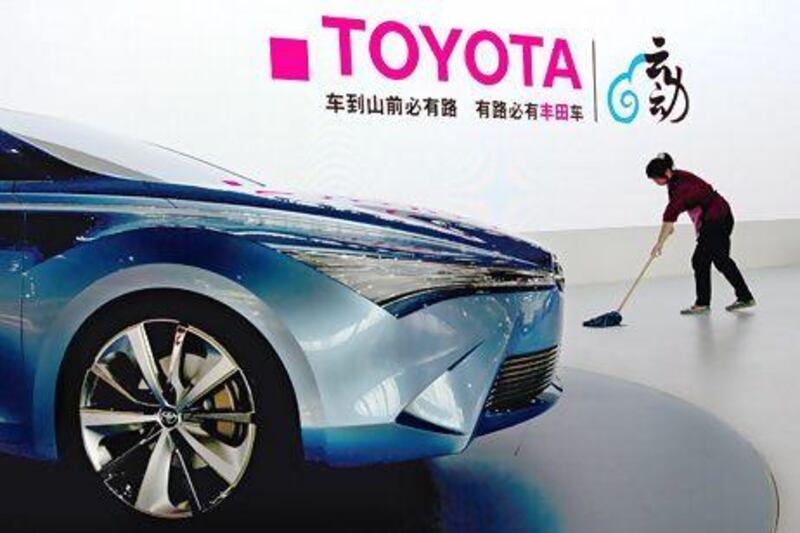The Japanese car-making giant Toyota is still stuck in reverse in China, where a territorial row between the two countries is hurting the Japanese car sector.
However, sales last month proved "surprisingly resilient", a senior Toyota executive said.
He said customer traffic in Toyota's showrooms was recovering to levels seen before the crisis over the disputed islands in the East China Sea broke out last September.
Toyota sold "almost" 90,000 vehicles in China last month, compared with 108,000 cars the company and its two Chinese partners sold in December 2011.
Toyota is expected to officially announce its China sales data for last month today, according to a company spokesman in Beijing. He did not respond to calls seeking comment on November sales.
The pace of last month's decline - about 17 per cent from a year earlier - eased from the previous three months.
"Sales rebounded faster than we had expected," said the Toyota executive, who declined to be identified.
He attributed the recovery in part to discounts and other sales incentives the company provided during the month.
Toyota's sales fall last month followed a decline of 22 per cent in November, 44 per cent in October, and almost 50 per cent in September.
Signs in the marketplace across China - including a recovery in customer traffic in dealer showrooms - were "encouraging", the Toyota executive said.
Sales patterns showed consumers were no longer as concerned as they were after a surge of anti-Japan sentiment that affected sales at car dealers.
Violent anti-Japan protests swept China from mid-September after Japan bought two East China Sea islands, known as the Diaoyu in Chinese and Senkaku in Japanese, from their private owner. China claims the islands as its own territory. Demand slumped in September and October, reducing the market share of Japanese firms in China's passenger car market to about 17 per cent from 19 per cent at the end of August, according to the China Association of Automotive Manufacturers.
Some Chinese consumers have since avoided Japanese cars. In a widely reported incident during the height of the anti-Japanese sentiment, a Chinese man was attacked by angry protesters for driving a Toyota Corolla.
Last month's sales showed Chinese consumers were "not as fearful of buying and driving Japanese cars as before", the Toyota executive said.
* with Reuters





